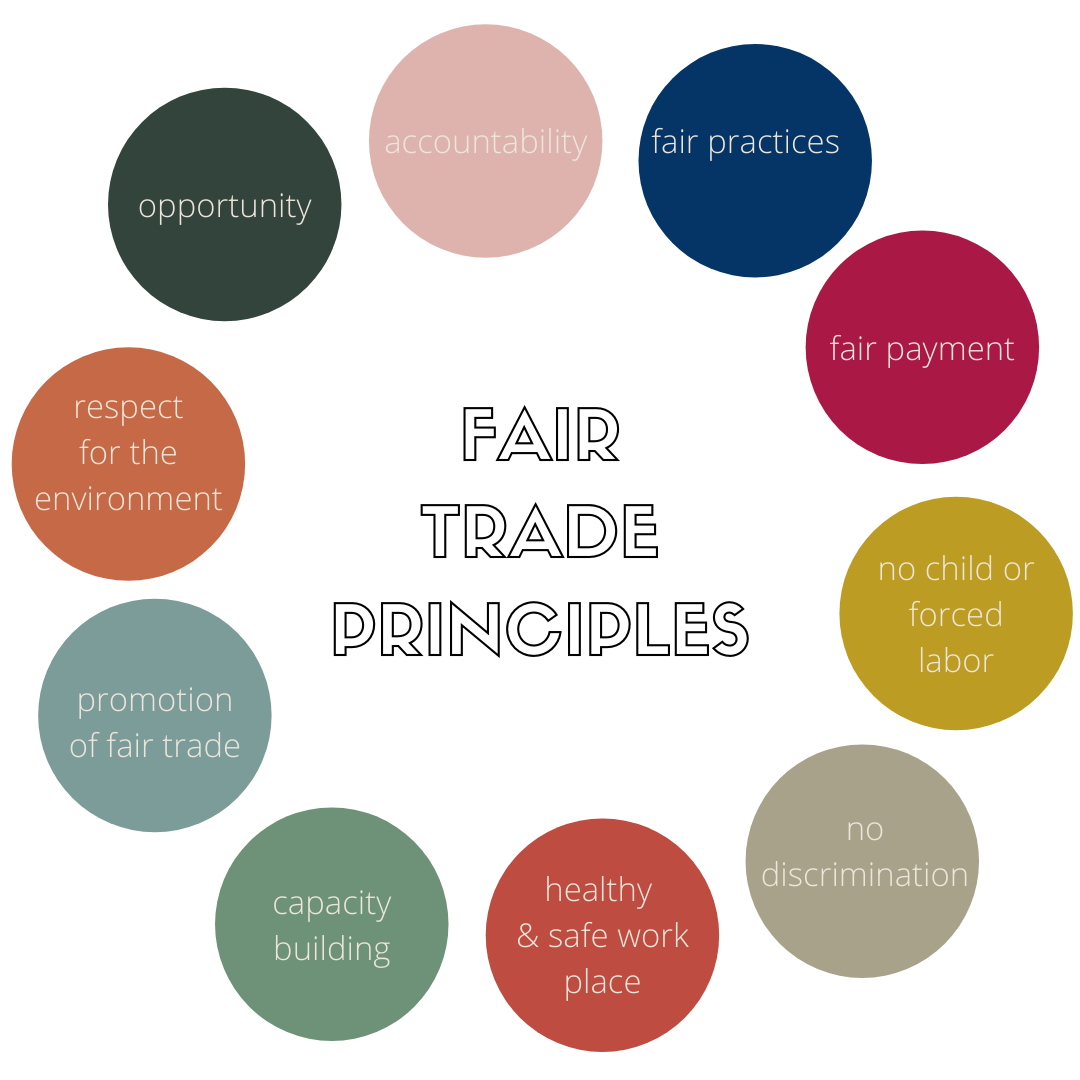Fair Trade

Fair Trade Principles:
Principle 1: Creating Opportunities for Economically Disadvantaged Producers
Poverty reduction by making producers economically independent.
Principle 2: Transparency and Accountability
Involving producers in important decision making.
Principle 3: Fair Trading Practices
Trading fairly with concern for the social, economic and environmental well-being of producers.
Principle 4: Payment of a Fair Price
Paying producers a fixed price by mutual agreement, ensuring socially acceptable wages depending on the location.
Principle 5: Ensuring no Child Labor and Forced Labor
Adhering to the United Nations (UN) Convention on children’s rights.
Principle 6: Commitment to Non Discrimination, Gender Equity and Women’s Economic Empowerment and Freedom of Association
Respecting the trade union rights and rejecting discrimination based on gender, religion or ethnicity.
Principle 7: Ensuring Good Working Conditions
Providing a safe and healthy working environment for producers and workers in line with the International Latour Organization (ILO) conventions.
Principle 8: Providing Capacity Building
Seeking to develop the skills of producers and workers so they can continue to grow and prosper.
Principle 9: Promoting Fair Trade
Raising awareness for the need of greater justice in world trade by trading fairly with poor communities.
Principle 10: Respect for the Environment
Caring for the environment by maximizing use of sustainable energy and raw materials while minimizing waste and pollution.
Thank you!
Donation Information
| Payment Option | Number |
|---|---|
| 01846685685 | |
| 01733700000 | |
| 017118020806 |

